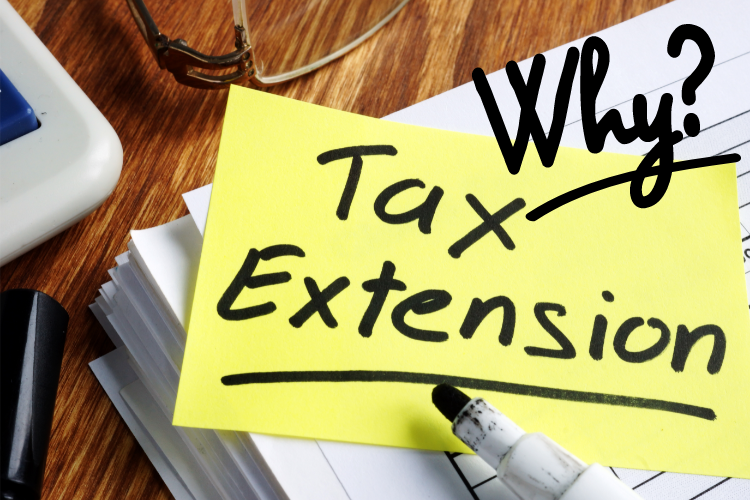
The Importance of Filing a Tax Extension: Avoiding Penalties and Gaining Peace of Mind
Tax season can be stressful for many, with the rush to gather documents, review financial records, and meet the mid-April deadline. However, only some can file their income tax returns on time.
If you find yourself in this situation, it’s crucial to understand the importance of filing a tax extension to avoid unnecessary penalties and interest and potentially reduce the chance of an audit.
Here’s what you need to know about extensions and what actions you should take by April 15th.
Understanding Tax Extensions

A tax extension is a formal petition submitted to the Internal Revenue Service (IRS) to obtain an extended period for submitting your tax return.
In the United States, April 15th is the regular due date for filing individual tax returns. You can file an extension to move the deadline to October 15, giving you six more months to ensure your tax return is correct.
Why File an Extension?

More Time to Gather Information:
An extension provides additional time to collect all necessary documentation, such as 1099s, W-2s, and receipts for deductions or credits.
Reduced Errors:
With the extra time, you can carefully review your return, reducing the likelihood of mistakes that could trigger an audit.
Minimize Penalties:

Filing an extension helps you avoid the failure-to-file penalty, which can be 5% of the unpaid taxes for each month or part of a month that a tax return is late.
Lower Audit Risk:
Rushing to meet the tax deadline can lead to errors or incomplete information, which can raise red flags with the IRS. You may lower your chances of being audited if you take the time to file a complete and correct return.
An extension does not protect you from audits by itself. Still, the extra time lets you prepare more carefully, which can indirectly lower your audit risk.
What You Need to Do on April 15th?

File Form 4868:
To request an extension, submit Form 4868 to the IRS by the April 15th deadline. This can be done electronically through tax software, with the help of a tax professional, or by mailing a paper form.
Pay Estimated Taxes Owed:
It’s important to note that an extension to file is not an extension to pay. To avoid penalties and interest, you must figure out how much tax you owe and pay it by April 15th. Use your previous year’s tax liability as a guide to estimate what you owe.
Consider Your Payment Options:

If you can not pay the total amount, consider your payment options, like offers in compromise or installment agreements. Paying as much as possible by the deadline will reduce the interest and penalties you’ll owe later.
Avoiding Penalties
The key to avoiding penalties is to both file Form 4868 and pay any estimated taxes owed by April 15th. Failure to file is usually more expensive than failure to pay, so if you can not pay your taxes on time, file for an extension.
Conclusion
Filing an extension for your income tax returns is a strategic move that can provide the time needed to accurately complete your taxes, minimize errors, and potentially reduce the chance of an audit.
Remember that the extra time only lets you file your return; it does not give you more time to pay your taxes. By taking the necessary steps on or before April 15th, you can avoid penalties and interest and gain peace of mind as you navigate tax season.
This article is intended for informational purposes and should not replace professional tax advice. Tax laws and regulations change frequently, and it’s always best to consult a tax professional or the IRS for the most current guidance.
